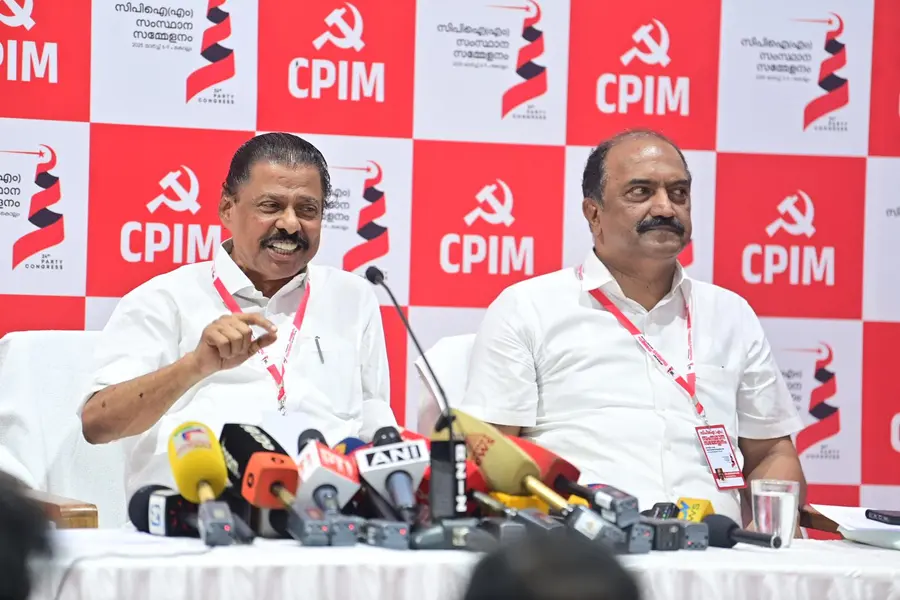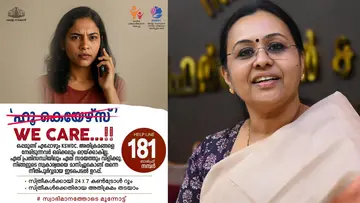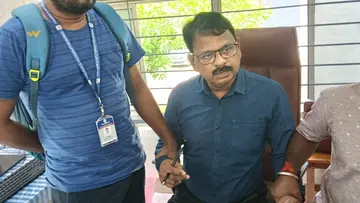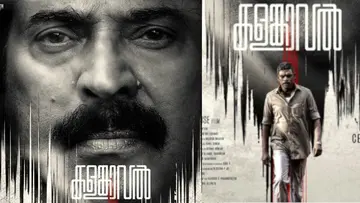CPIM 24th State Conference
Redefining Kerala: A Socialist Blueprint for Resistance and Renewal

CPIM State Secretary M.V Govindan and K.N Balagopal during the press meet

Web desk
Published on Mar 06, 2025, 11:57 PM | 4 min read
"Feudalism was overthrown in Kerala through the transformative power of land reforms and the rise of the Communist movement in the state. This process facilitated the emergence of a growing middle class, contributing to the reduction of disparities between rural and urban areas and accelerating urbanization. However, alongside this progress, we also witness the rise of communal forces attempting to undermine our unity. The 24th CPIM Kerala State Conference is being held with a clear understanding of these challenges and a firm resolve to continue the struggle. It is a moment to chart a new path towards building a New Kerala—one rooted in socialist principles," said M.V. Govindan while addressing the media after the conclusion of Day One of the CPIM Conference.
He stated that on Day One, the Politburo member and Kerala Chief Minister presented the roadmap titled "New Pathways to New Kerala," outlining the vision for the future development of the state. Elaborating on this roadmap, he explained, “This is a six-part framework. The first part offers a concrete analysis of the discussions held at the previous Party Conference, laying the foundation for assessing Kerala’s progress. It critically examines how the state has advanced under our leadership, securing top positions in various indices, demonstrating the success of our socialist policies in uplifting the masses and advancing the interests of Kerala society."
In the second part of the roadmap, the party engages in a self-critical analysis of its functioning, examining its role in the context of Kerala’s transformation. With the abolition of the feudal system, this section outlines how the Left Democratic Front (LDF) intends to confront the new challenges emerging in society. From a Marxist socialist perspective, it provides a clear framework for understanding how the party will continue to advance the struggle, address contradictions, and strengthen its grassroot while reinforcing the foundations of socialist transformation in Kerala.
The third part focuses on the state of Kerala when the LDF first came to power, detailing the socio-economic and political conditions at that time. It critically examines the challenges the state faced, including the lingering effects of feudalism, economic stagnation, and social inequality. The section then outlines the significant changes that have occurred since the LDF assumed leadership, highlighting the transformative policies implemented to address these issues.
These include land reforms, improvements in public welfare, and the strengthening of democratic institutions, all of which have played a crucial role in reshaping Kerala’s development trajectory. Furthermore, this part also looks ahead, as the party prepares for the upcoming panchayat and assembly elections, assessing the progress made and outlining strategies to continue advancing its vision for the state in the next phase of electoral challenges.
He added, "Furthermore, in the fourth part, we are particularly focusing on the progress made over the past two terms, evaluating the advancements and challenges faced during these years. This section provides a detailed analysis of the achievements and shortcomings of the LDF government in its recent tenure, emphasizing the policies that have driven Kerala’s development and social welfare."
In the fifth part, the document discusses the Union Government's stance towards Kerala, critically analyzing how its policies are anti-people and anti-Kerala. It highlights the challenges posed by the central government's approach, which has often undermined the state's interests. The section further elaborates on how Kerala, under the leadership of the LDF, has actively intervened to overcome these obstacles, adopting strategies to protect the welfare of its people and safeguard its socio-economic progress despite the adverse actions of the Union Government.
In the sixth section, he said, "We are focusing on becoming an alternative. Socialism is the alternative, and therefore, we are going to discuss and build upon this framework to look towards the future. Our goal is to emerge as an alternative force, especially when the whole country is under the control of pro-corporate, communal forces. We will not succumb to their manipulative tactics. Instead, we are committed to addressing real issues, taking real action, standing with the people, and becoming an alternative force that can even change the face of the country."










0 comments